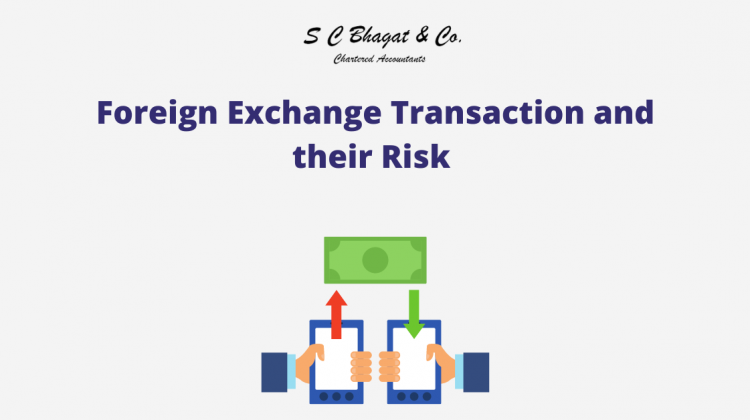Foreign Exchange (FX or Forex) is the trading of one currency for another. It can take place on the foreign exchange market and also known as forex market. The Foreign Exchange Transactions refers to purchase of foreign currencies & the sale. It is an agreement of exchange of currencies of one country for another at an agreed exchange rate on a definite date.
It means sales of foreign exchange or acts of purchase or the acts of borrowing, giving credits and of accepting or providing foreign exchange in any manner, whatsoever, and this expression includes the act of granting approval for foreign exchange by the bank. A single country’s currency is valued against another currency and against basket of currencies.
Types of Forex (Foreign Exchange Transaction):
It includes all conversion of currencies which may done by traveller or an airport-kiosk or billion-dollar payments made by financial government and institutions.
They are following types of Foreign Exchange Transactions:
- Forward Transactions: It is future transaction when the buyer & seller enter into an agreement of purchase & sales of currency after 90 days. The rate at which deal is fixed is termed as Forward Exchange Rate. The agreement is framed on the basis of a fixed exchange rate for a definite date in the future.
- Swap Transactions: A simultaneous borrowing and lending of two different currencies between two investors are referred to as swap transaction. These are done to pay off obligations without suffering a foreign exchange risk. One investor borrows a currency and repays in the form of a second currency to the second investor.
- Spot Transactions: It is method of fastest way to exchange currency. It refers to exchange or settlement of the currencies by the seller or buyer within two days of the deal without a signed contract. The spot exchange rate is the prevailing exchange rate in the market.
- Options Transactions: It is the exchange of currencies from one denomination to another at an agreed rate on a specific date is an option for an investor. Every investor owns the right to convert the currency but it is not obligated to do so.
- Arbitrage: It is the simultaneous buying & selling of foreign currencies with the intentions of making profit from difference between the exchange rate prevailing at the same time in different markets.
- Future Transactions: It is also deals with contracts in the same manner as forward transaction. However, in case of future transactions, standardized contract in terms of date, size and features should be followed. In this, an initial margin is fixed and kept as collateral in order to establish a future position. Whereas, regular forward transactions have customized and can be flexibility.
Foreign Exchange Transactions Risk:
It includes three types of Foreign Exchange Transaction Risk:
- Economic Risk: It is also known as forecast Risk. It is the Risk that a company’s market value is impacted by unavoidable exposure exchange rate fluctuations such type of a risk is usually created by macroeconomic conditions such as government regulations and geopolitical instability. For example: A Australian furniture company that sell locally will face economic risk for furniture importers, especially if the Australian currency unexpectedly strengthens.
- Translation Risk: It is also known as translation exposure. It refers to the Risk is faced by company headquartered domestically but conducting business in a foreign jurisdiction, and which of company financial performance is denoted in domestic currency. It is higher when company hold a greater portion of its assets, equities or liabilities in a foreign currency. For example: A parent company that reports in Australian dollars but overseas a subsidiary’s financial performance –which is in Chinese Yuan is translated into Australian dollar for reporting purpose.
- Transaction Risk: It is the risk faced by a company when making financial transaction between jurisdictions. This risk is the change in exchange rate before transaction settlement is the source of transaction risk. It can be mitigated using forward contracts and options. For example, an Australian company with operations in Candia is looking to transfer AUD600 in earnings to its Australian account. If the exchange rate at the time of the transaction was 1 CAD for 6AUD, and the rate subsequently falls to 1 CAD for 7 AUD before settlement, an expected receipt of CAD100 (AUD600/6) would instead of CAD86 (AUD600/7).
Companies that are subjected to Foreign exchange Risk can implement hedging strategies mitigate that risk. It involves options, forward contracts & other exotic financial products and if done properly and can be protected for unwanted foreign exchange moves.

